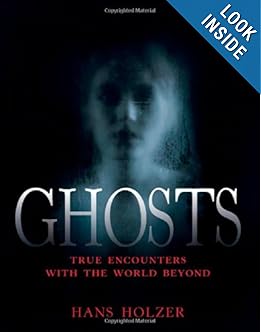Sort of.
Further to “Stale, leftover Halloween candy: Scientific American’s nonsense about Satan,” the New Republic’s Isaac Chotiner takes on a New York Times columnist on spookery.
What is the matter with these people anyway? Is it just the time of year?
Chotiner describes anthropologist op-ed contributor T.M. Luhrmann’s ghostly piece as “a type of muddled thinking that is usually only allowed if the subject is faith.” He quotes her topic point:
As many as 80 percent of those who lose loved ones report that they sense that person after death. These are real sensory events. People hear a voice; they feel a touch; they recognize a presence.
Luhrmann had a similar experience around the death of a beloved dog.
 Fair enough, but what follows? Does that mean that the deceased person or dog is really there again in some sense? On that point, Chotiner accuses Luhrmann of fudging, ending with “It’s all up to you [how you want to interpret it]”:
Fair enough, but what follows? Does that mean that the deceased person or dog is really there again in some sense? On that point, Chotiner accuses Luhrmann of fudging, ending with “It’s all up to you [how you want to interpret it]”:
… for people like Luhrmann, the whole point is to muddy these waters. … Well, of course it is up to you, since we have this thing called freedom of religion and don’t live in a totalitarian society. We can thank Luhrmann for reminding us of this. In the meantime, she might decide that if she wants to be an opinion columnist, she should offer her opinion. My hunch is that the reason she doesn’t want to do so is that it might lead to the following conclusion: Not all “interpretations” are equally valid.
Venturing an opinion myself here: Leaving the dog aside for a moment, the conventional Western world belief that the human dead are with God does not logically mean that they can continue to visit us. A sense that they are indeed visiting us is most likely the outcome of the many years they were with us, compared to the few they were not. No surprise if that sense fades with time.
Our ancestors were more sensible. They tended to pay more attention if the ghost was alleged to have made a prophecy that came true or told the hallucinated person where a long lost object of value was hidden. Or told the manner of their death in a way unknown at the time but confirmed later. Or where their body was hidden (accurately), so that it might be reburied with appropriate rites. Or some such thing. Something that ties the ghost to an objective world of reality, whether seen or unseen, not just what people feel.
Chalk another one up to the damage done by methodological naturalism in its decay?: Unable to rid themselves of the conviction that there is more to life than the material or the natural, the naturalists end up carrying on about Satan and ghosts, and getting it all wrong even then.
See also: Some atheists really do believe in ghosts.
Hat tip: Stephanie West Allen at Brains on Purpose